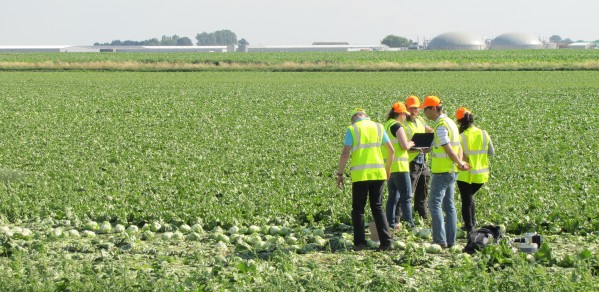
Cambridge mechatronics expert Dr Fumiya Iida has won a scientific award of £50,000 to develop state-of-the-art robotics technology for use in agriculture.
This project using soft robotics for autonomous and sustainable agriculture is about making a significant step from the lab environment to the real world.
Dr Iida
Dr Iida was one of seven scientists to receive the Royal Society Translation Award which was granted to applicants wishing to investigate the potential of commercialising an aspect of their research.
Despite technological advances in the automation of agriculture, Dr Iida says there are still roles which are not automated, such as the sorting of crops by manual labourers after harvesting.
The focus of Dr Iida’s project will be in developing soft robotics that allows farmers to automatically sort a variety of crops for better outcomes, both logistically and in terms of an extended shelf life and the easier management of products throughout the supply chain.
Dr Iida’s Machine Intelligence Research Group has been developing the use of computer vision and machine learning techniques for soft robotic manipulators that are able to detect and interact with physical objects of various kinds, with some degree of uncertainty.
Soft robots are able to deal with uncertain tasks in unstructured environments, such as fields, much better than conventional, rigid robots.
It is the uncertainties encountered during the farming process, such as temperature, lighting and varying shapes and sizes of vegetables, which Dr Iida says makes agriculture such an ideal target for his research group’s ‘intelligent’ robotic manipulators.
“This project using soft robotics for autonomous and sustainable agriculture is about making a significant step from the lab environment to the real world,” he said.
“The main work will involve the development of a platform to test on the farm (for example in vegetable harvesting sites) and to analyse the feasibility of the technology, bringing us closer to the end goal of commercialising the technology.
“It is an honour to receive the Royal Society Translation Award which will enable my research group and I to make great strides forward in our robotics work. Our ultimate aim is for an efficient system which brings multiple benefits to sustainable farming in the age of robotics.”
Dr Hermann Hauser KBE FREng FRS, science entrepreneur and co-chair of the Royal Society’s Science, Industry and Translation Committee, said: “We are delighted to announce the first winners of the Royal Society’s newly expanded Innovation and Translation Awards. These awards support some of the very best, innovative researchers in UK universities to increase their chances of entrepreneurial success. The process of translating research from academia into commercially viable products can be challenging and we are proud to help bridge the journey for nine researchers this year.”

